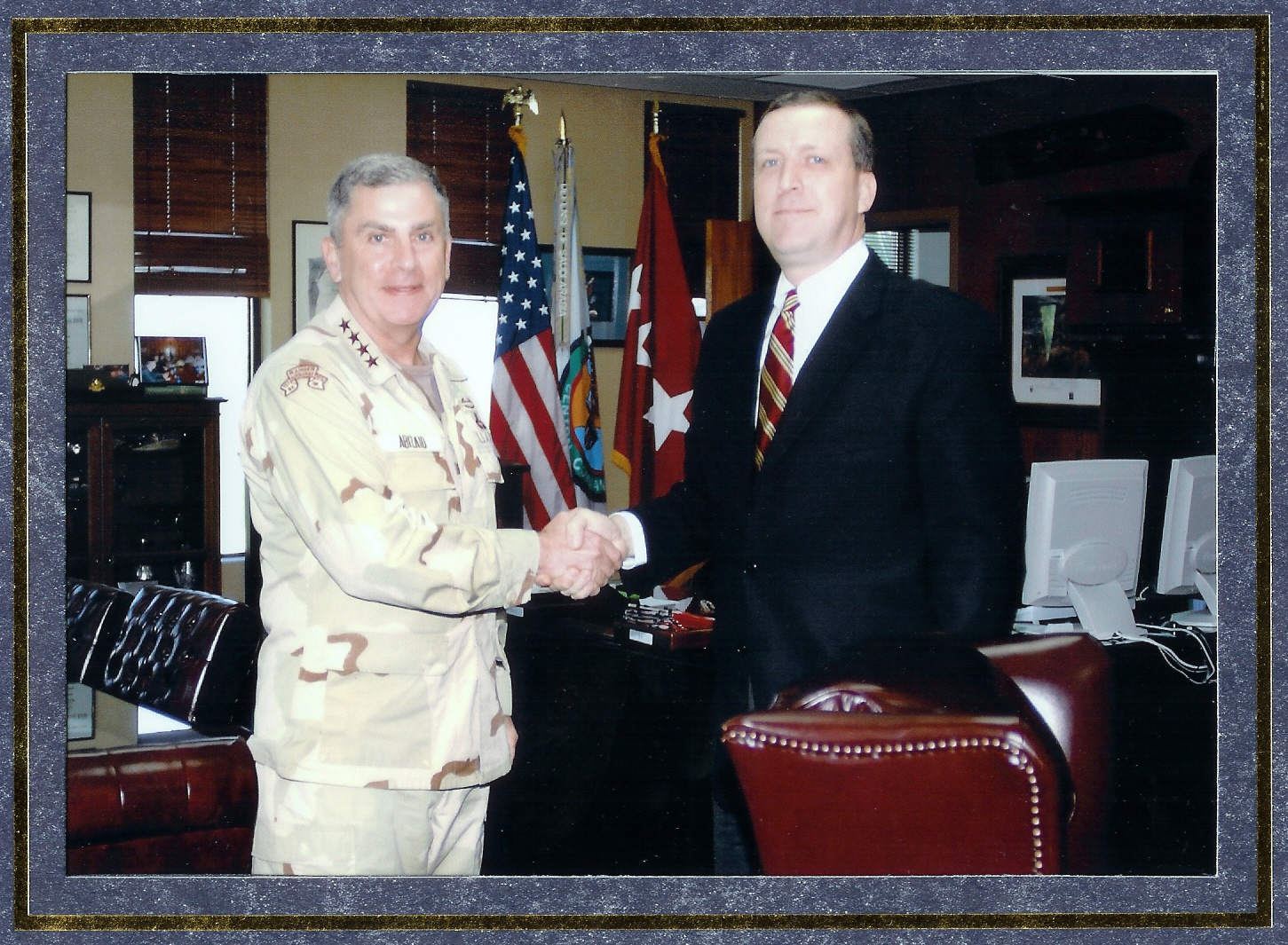■"The Open-Source War,"op-ed by John Robb, New York Times, 15 October 2005.
Interesting piece on diagnosis, but implied prescription is wrong, in my mind.
In the Global War on Terrorism, the temptation, like in all other long struggles, will be to mirror image the enemy on supposition that his asymmetrical challenge must prevail. But just pushing our "open-source" proxies into wars against our enemies threatens to replicate colonial struggles in the Gap between us and rising New Core powers like China. It is the ultimate in "playing their game" if we let that struggle, which we will obviously engage as required, define our center of gravity in the GWOT.
Remember, super-empowered individuals can rule vertical scenarios temporarily, but it takes states, and all their resources, to rule horizonatal ones. In short, don't confuse disruption capacity with rule-making capacity. To believe the former rules all is to engage in what that battle-tested revolutionary, V.I. Lenin, called the child-like belief that the right bomb in the right place at the right time changes everything. Modeling ourselves on OBL's and Al Qaeda's infantilism isn't the answer. Building the bigger open-source net is. This is my A-to-Z rule set on processing politically bankrupt states.
Creating better rules is how we win. By doing so we attract good citizens and good states, slowly but surely. Killing symmetrically is gratifying, but ultimately pointless. Reformatting their world so that their cause dies is the real victory. Not a matter of making it like our own, but simply making it connective in a deep sense with the outside world, so that individuals can choose their level of connectivity no matter what the authorities say or do.
So I say, bet on numbers. Bet on bigger networks. Bet on growing the Core and, by doing so, restricting the enemy's operating domain.
Information technology analogies are great, but they do not constitute tactics, much less strategy. The winning remains the same: kill their bad guys and replace bad governments with good. Don't confuse the friction with the formatting. Don't confuse skirmishes with campaigns. Don't confuse their asymmetry with our disadvantage.
In the end, we win as we always do: with stuff. Capitalism bribes off its enemies with wealth. Worked in 1848 in Europe and it's worked ever since.
Fourth Generation Warfare is the diagnosis, and it's a good one. But it will never be the answer because it sees only about 10% of reality. We need to wage peace from the outside in, spreading connectivity, not wage war from the inside out, hoping for democracy. We will never win in Iraq. Globalization will. What we wage now in Iraq isn't war. It's a holding action for history, which isn't so much on our side as constantly on our ass. Globalization is the ultimate horizontal scenario, the ultimate open-source net. Resistance is futile, but it will remain all some people have. They will die in a form of political-military evolution: the decline and disappearance of the unconnectable.
4GW adherents believe our enemies can play the waiting game, but it's the other way around. Time is on our side. You can tell simply by the perversity on their side. It signals their nihilism, or the realization that they cannot win.
As for Robb's notion that Iraq proves the fallacy of arguing for the SysAdmin, this is the analytical equivalent of a tautology, and I was surprised he made it. Arguing a non-attempt as proof of the concept's failure is just plain weak, which is probably why he tacked it on the end of the piece with no explanation. The SysAdmin was applied in Bosnia and Kosovo. Someone please point out the civil wars still raging there.
Chins up. The gloom-and-doomers always prevail in newsprint. They don't, however, in history.
Go here for the full piece: http://www.nytimes.com/2005/10/15/opinion/15robb.html
Robb writes interesting blogs, a pair of them. On a daily basis he comes off less dark and more analytically balanced, but as so often happens when dark siders have to sum up in print, this one was dark seemingly for the sake of being dark. There is no way out in this piece. Many consider this realism, but in reality there is always a way out.
 Tuesday, October 18, 2005 at 1:08PM
Tuesday, October 18, 2005 at 1:08PM 











